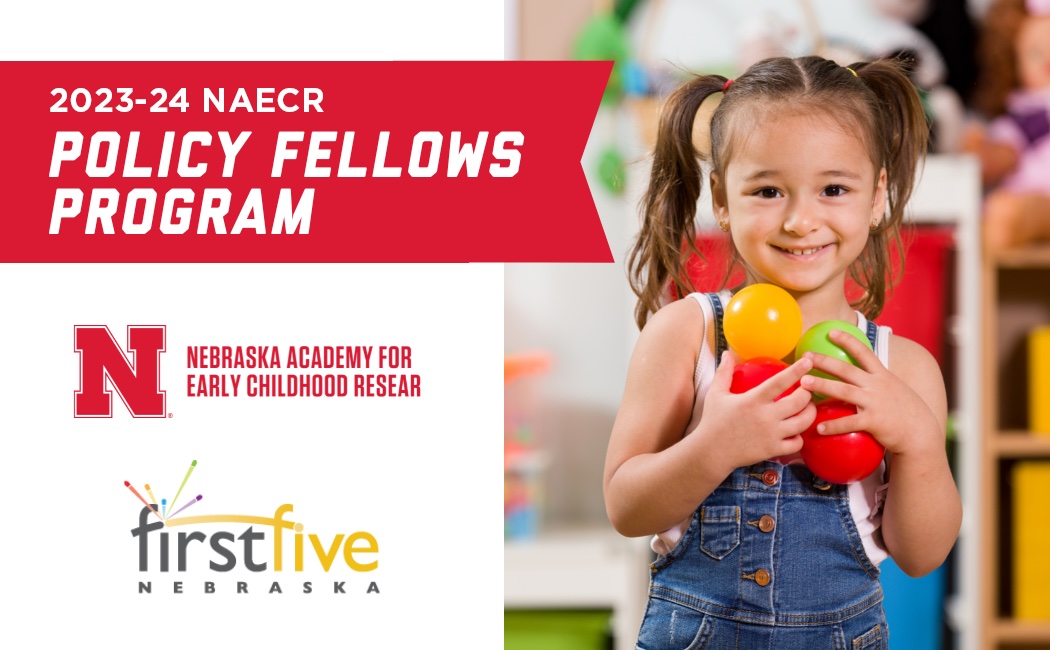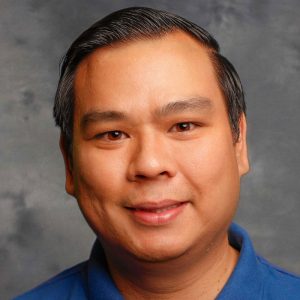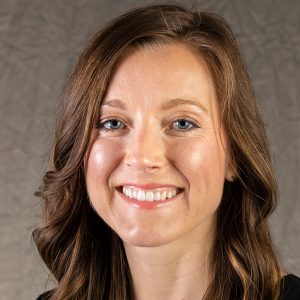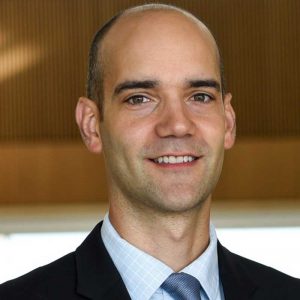
The Nebraska Academy for Early Childhood Research has selected three faculty members to serve as Policy Fellows for the 2023-24 academic year.
The NAECR Policy Fellows Program is designed to educate early childhood researchers on policy processes, impacts and relationships to research; to provide policymakers with insight into the latest early childhood research at the University of Nebraska; and to generate collaboration among researchers and policymakers to develop effective research agendas that enrich early childhood experiences.
The program features a series of informal conversations between NAECR early childhood researchers and First Five Nebraska.
Katie Bass, data and policy research advisor for First Five Nebraska, said the Policy Fellows program is key to bridging the gap between the research and policy communities in the state.
“First Five Nebraska is privileged to have a front-row seat, using leading-edge research to help our state’s policymakers make the most informed decisions possible about the care, education and healthy development of young children,” she said.
Bass noted that continuing and strengthening the partnership between First Five Nebraska and NAECR Policy Fellows is crucial for future generations of children and their families.
“When we combine this mutually beneficial learning process with the work of building strategic relationships, it widens future opportunities for evaluative and applied policy research,” Bass said.
2023-24 NAECR Policy Fellows:

“As a policy fellow, I am looking forward to learning more about the relationship between early childhood research and public policy. I am excited to have the opportunity to work with fellow researchers and policy experts with the goal of enriching early childhood experiences across our state. Early childhood is critical because this time period sets the foundation for future academic success and developmental growth. Research is the backbone of any successful endeavor. Therefore, early childhood research when working in collaboration with policymakers, can have an impactful and meaningful effect on every developing child in Nebraska.”
— Philip Lai, associate professor of communication disorders, University of Nebraska at Kearney

“I am excited to learn how my research can intersect with local, state and federal policy processes to improve early childhood care, intervention and education for young children with disabilities, delays and differences and their families. Experiences in early childhood set the stage for the rest of our lives. Because of the cascading effects we see across the lifespan, early childhood is the best time to begin education and interventions, particularly for young children with disabilities, delays and differences. It is also a time when families may need extra guidance and support to give their children the best start possible.”
— Susan Loveall, assistant professor of special education and communication disorders, University of Nebraska–Lincoln

“Early childhood investment has the potential to shape children’s lives for decades, and well-designed programs can benefit not only the kids but also parents and even the larger community. I am looking forward to learning from practitioners and policymakers about the areas they see as most in need of new evidence, as well as joining the conversation about how the research community can help encourage evidence-based approaches to programs that affect children and families.”
— Brenden Timpe, assistant professor of economics, University of Nebraska–Lincoln